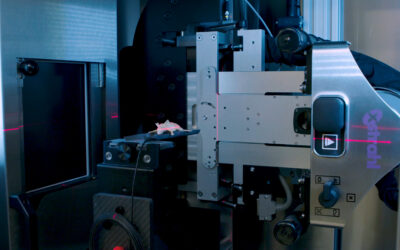David Fernandez-Antoran PhD, Group Leader, The Gurdon Institute, University of Cambridge, Cambridge, UK
ARAID Researcher, Head of Cell Competition and Radiation Biology Laboratory, IIS-Aragon, Zaragoza, Spain
Ionising radiation is one of the most common environmental mutagenic agents that might promote tumour formation by damaging DNA but also forms the basis of therapy for the majority of cancers. Healthy adult epithelial tissues gradually accumulate clones of cells harbouring cancer-associated mutations. These mutations undergo Darwinian selection, leading to the expansion of specific clones that outcompete neighbouring non-mutated cells. This phenomenon, termed clonal competition, involves the promotion of mutant clone growth at the cost of adjacent normal cells. Ionising radiation exposures are the basis of therapy for the majority of cancers, but they also have the capacity to modify tissue environmental conditions, thus functioning as selective pressures that influence the dynamics of clonal competition.
In this webcast, David Fernandez-Antoran PhD, describes his group’s research to unravel the molecular responses and the cellular interactions that control normal and mutant cell behaviours after exposure to varying doses of ionising radiation provided by the Xstrahl CIX cabinet systems. Key to this are the use of long-term human and mouse 3D primary epithelial cultures (Epithelioids), in vivo cell lineage tracing, mathematical modelling, next generation DNA sequencing methods and state-of-the-art confocal microscopy techniques.







